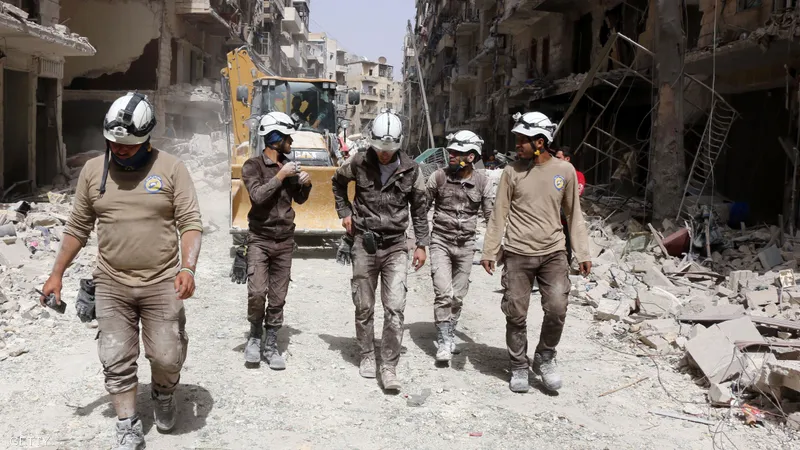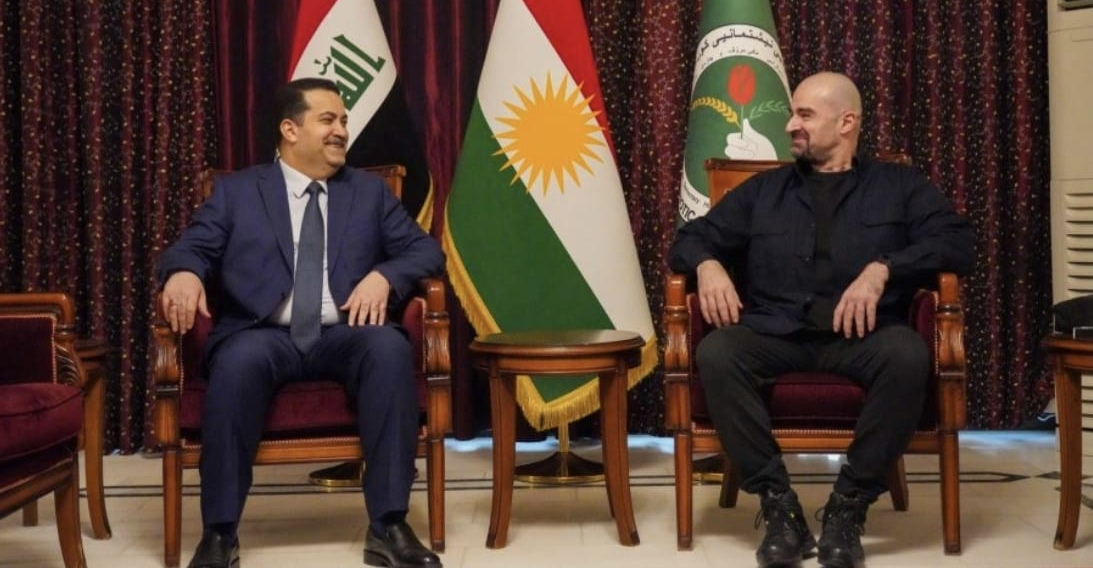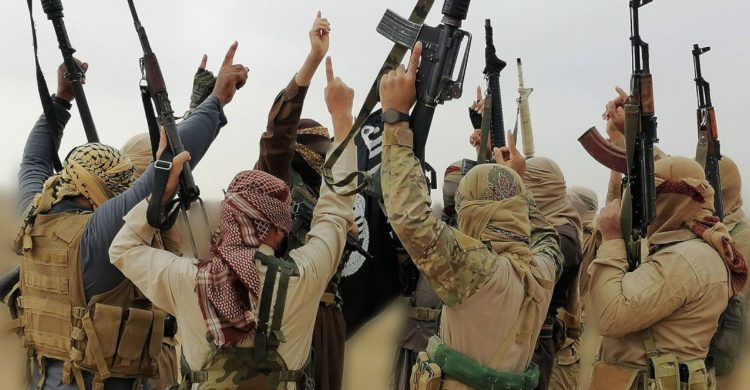War remnants hinder refugees' return to Syria: White Helmets on the frontline

Shafaq News/ As Syria is still suffering from the aftermath of adecade-long war and the fall of Bashar al-Assad's regime, the remnants ofconflict continue to haunt the country’s land—posing a deadly threat to thedisplaced and the hopeful who seek to return home. The Syrian Civil DefenceOrganization, also known as the White Helmets, is working intensively to reducethese risks.
Founded in 2013, the White Helmets is a civil defense groupcomposed of about 3,000 civilian volunteers from Syria, dedicated to assistingthose affected by the war without allegiance to any direct political entity.
Hope for Return
Over the past 14 years, the Syrian Network for Human Rights (SNHR)has documented the widespread use of anti-personnel landmines (APLs), includingremnants of cluster munitions, resulting in numerous deaths and injuries.
“Because of the ease of manufacturing them and their low costs,landmines have been used extensively by various parties to the conflict withoutregard for marking their locations or removing them afterward,” SNHR said.
The Network revealed that from late 2011 onwards, the Al-Assadregime began planting landmines along the borders with Lebanon and Tukriyewithout issuing sufficient warnings. “Monitoring indicates that other partiesto the conflict and controlling forces have also commonly used landmines,although all documented use of cluster munitions in Syria has been exclusivelyby the Al-Assad regime and Russian forces.”
The regime fell on December 8, 2024, at the hands of oppositionfactions during the Deterrence of Aggression battle, which began on November27, 2024. Following the withdrawal of Al-Assad's forces from previouslycontrolled areas, remnants of war—landmines, unexploded ordnance, and hazardousmunitions—were left behind, posing a constant threat to displaced persons andrefugees who have regained hope of returning to their homes.
Landmine Casualties in Syria
Syria recorded the highest global number of landmine casualties forthree consecutive years—2020, 2021, and 2022. In 2023, the country rankedsecond, with 933 deaths caused by landmines, trailing Myanmar, which recorded1,003 casualties, according to the Landmine Monitor.
SNHR documented 3,521 civilian deaths caused by landmine explosionsbetween March 2011 and the end of 2024. These included 931 children, 362 women,7 Civil Defense personnel, 8 medical staff, and 9 media workers. Among thevictims, 45 civilians—6 children and 4 women—were killed between November 27and December 31, 2024.
The network further estimated that over 10,400 individualssustained injuries of varying severity.
Sami Mohammad, director of the War Remnants and AmmunitionClearance Program revealed that, from the fall of the regime until December 31,2024, incidents involving war remnants claimed the lives of 55 people, a thirdof whom were women and children. All of them were reportedly killed due tolandmines and unexploded ordnance in Homs, Hama, Idlib, Deir ez-Zor, andAleppo.
Full Mobilization
For the past four weeks, the Syrian Civil Defense has been in"full mobilization" to mitigate the dangers posed by landmines andunexploded ordnance. According to Mohammad, "Most Syrians wish to returnto their homes and engage in agricultural activities on their lands," hesaid, warning that "haphazard returns lead to many accidents."
The return of displaced individuals, Mohammad stressed, must be"organized, coordinated with the community, authorities, and localcouncils in these areas before returning and conducting any agriculturaloperations."
“War remnants are still widespread in many regions.”
Hama, Aleppo, Idlib, and a large part of Deir ez-Zor are theprovinces most contaminated by explosive remnants, Mohammad said. While otherprovinces also face contamination, it is not to the same extent as these fourareas. "A large portion of the munitions has been cleared," heconfirmed, "but the Civil Defense teams are not specialized in dealingwith mines… So, efforts are currently focused solely on identifying areascontaminated."
He also highlighted the dangers posed by anti-personnel mines andcluster bombs, describing them as the most widespread and hazardous."Cluster bombs, in particular, are almost present in all Syrian areaswithout exception," he added.
Ongoing Efforts Since 2016
Mohammad noted that "the former regime had no interest inremoving landmines and unexploded ordnance, and there was no center for mineclearance." He pointed out that the current government "has notimplemented concrete plans to address the contamination caused by ordnance andlandmines, with some operations carried out randomly and limited inscope."
Since 2016, the Civil Defence has been actively working to removewar remnants, he confirmed. “It is not affiliated with any government but is anindependent organization."
While the organization is involved in various public service tasks,such as search and rescue and road opening, which are currently underway inDeir ez-Zor, the team responsible for removing war remnants has not yet enteredthe area. "The situation is currently being assessed to enter it in thecoming days.”
Need for International Intervention; Unstable Government Situation
On December 14, 2024, the British organization HALO Trust calledfor an "international effort" to eliminate landmines and unexplodedordnance in Syria, warning that thousands of people returning to their homesafter the fall of al-Assad's regime "are at great risk."
The current Civil Defense staff, Mohammad clarified, is onlysufficient for specific areas in Syria. "There is a need for more staff,as the contamination problem cannot be solved by one or even severalorganizations, whether international or local." He highlighted that"a strong international intervention" is needed to address the issuemore rapidly, warning that "if the current mechanism remains in place,solving it will take years."
Although the White Helmets have met with various internationalorganizations, “most of them have taken a monitoring role for the timebeing." The program director attributed this pause in activity to “thesudden political change” in Syria, which caused international organizations tohalt their activities to some extent. “They are currently studying thesituation and developing plans."
Regarding the removal of military munitions and landmines, he notedthat it cannot begin immediately, as "it requires setting plans, includingnational strategies with the help of the government."
With the government situation currently unstable and a caretakergovernment in place, "elections will be held, and a transitionalgovernment will be appointed after some time." Mohammad stressed that"this government must have clear plans for removing landmines andunexploded ordnance."
While "most organizations are currently waiting for thismatter," he noted, "some others are waiting for sanctions to besuspended or completely lifted from Syria."
Cooperation with Iraq
When asked about the possibility of collaborating with the IraqiCivil Defense, the expert affirmed that the Syrian organization is"currently open to everyone without any exceptions.”
He highlighted that the White Helmets could benefit from the"nearly 20 years" of mine clearance experience in Iraq, as well asfrom the expertise of Lebanon and Yemen.



